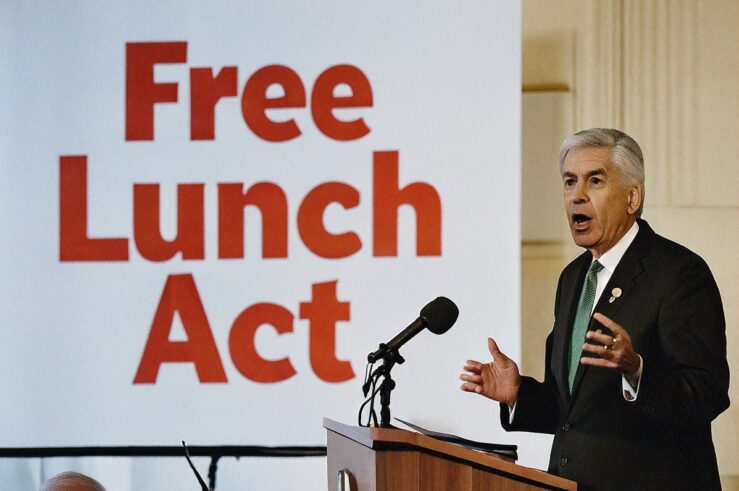Daniel Kahnemann and co-authors discuss, in the most recent issue of the Harvard Business Review (HT: Brian McCann), various strategies for debiasing individual decisions that impact firm performance. Much of the advice boils down to more conscious deliberation about decisions, incorporating awareness that individuals can be biased into firm-level decisions, and subjecting decisions to more rigorous cost-benefit analysis. The authors discuss a handful of examples with executives contemplating this or that decision (a pricing change, a large capital outlay, and a major acquisition) and walk through how thinking harder about recognizing biases of individuals responsible for these decisions or recommendations might be identified and nipped in the bud before a costly error occurs.
Luckily for our HBS heroes they are able to catch these potential decision-making errors in time and correct them:
But in the end, Bob, Lisa, and Devesh all did, and averted serious problems as a result. Bob resisted the temptation to implement the price cut his team was clamoring for at the risk of destroying profitability and triggering a price war. Instead, he challenged the team to propose an alternative, and eventually successful, marketing plan. Lisa refused to approve an investment that, as she discovered, aimed to justify and prop up earlier sunk-cost investments in the same business. Her team later proposed an investment in a new technology that would leapfrog the competition. Finally, Devesh signed off on the deal his team was proposing, but not before additional due diligence had uncovered issues that led to a significant reduction in the acquisition price.
The real challenge for executives who want to implement decision quality control is not time or cost. It is the need to build awareness that even highly experienced, superbly competent, and well intentioned managers are fallible. Organizations need to realize that a disciplined decision-making process, not individual genius, is the key to a sound strategy. And they will have to create a culture of open debate in which such processes can flourish.
But what if they didn’t? Of course, the result would be a costly mistake. The sanction from the marketplace would provide a significant incentive for firms to act “as-if” rational over time. As Judd Stone and I have written (forthcoming in the Cardozo Law Review), the firm itself can be expected to play a critical role in this debiasing:
Economic theory provides another reason for skepticism concerning predictable firm irrationality. As Armen Alchian, Ronald Coase, Harold Demsetz, Benjamin Klein, and Oliver Williamson (amongst others) have reiterated for decades, the firm is not merely a heterogeneous hodgepodge of individuals, but an institution constructed to lower transaction costs relative to making use of the price system (the make or buy decision). Firms thereby facilitate specialization, production, and exchange. Firms must react to the full panoply of economic forces and pressures, responding through innovation and competition. To the extent that cognitive biases operate to deprive individuals of the ability to choose rationally, the firm and the market provide effective mechanisms to at least mitigate these biases when they reduce profits.
A critical battleground for behaviorally-based regulatory intervention, including antitrust but not limited to it, is the question of whether agencies and courts on the one hand, or firms on the other, are the least cost avoiders of social costs associated with cognitive bias. Stone & Wright argue in the antitrust context — contrary to the claims of Commissioner Rosch and other proponents of the behavioral approach — that the claim that individuals are behaviorally biased, and that because firms are made up of individuals, they too must be biased, simply does not provide intellectual support for behavioral regulation. The most obvious failure is that it lacks the comparative institutional perspective described above. Most accounts favoring greater implementation of behavioral regulation at the agency level glide over this question. Not all, of course.
For example, Commissioner Rosch has offered the following response to the “regulators are irrational-too” critique:
My problem with this criticism is that it ignores the fact that, unlike human beings who make decisions in a vacuum, government regulators have the ability to study over time how individuals behave in certain settings (i.e., whether certain default rules provide adequate disclosure to help them make the most informed decision). Thus, if and to the extent that government regulators are mindful of the human failings discussed above, and their rules are preceded by rigorous and objective tests, it is arguable that they are less likely to get things wrong than one would predict. Of course, it may be the case that the concern with behavioral economics is less that regulators are imperfect and more than they are subject to political biases and that behavioral economics is simply liberalism masquerading as economic thinking.24 My response to that is that political capture is everywhere in Washington and that to the extent behavioral economics supports “hands on” regulation it is no more political than neoclassical economics which generally supports “hands off” regulation. On a more serious note, perhaps the best way behavioral economics could counter this critique over the long run would be to identify ways in which the insights from behavioral economics suggest regulation that one would not expect from a “left-wing” legal theory.
For my money, I find this reply altogether unconvincing. It amounts to the claim that government agencies can be expected to have a comparative advantage over firms in ameliorating the social costs of errors. The fact that government regulators might “get things wrong” less often than one might predict is besides the point. The question is, again, comparing the two relevant institutions: firms in the marketplace and government agencies. “We’re the government and we’re here to help” isn’t much of an answer to the appropriate question here. There are further problems with this answer. As I’ve written in response to the Commissioner’s claims:
But seriously, human beings making decisions “in a vacuum?” It is individuals and firms who are making decisions insulated from market forces that create profit-motive and other incentives to learn about irrationality and get decisions right — not regulators? The response to the argument that behavioral economics is simply liberalism masquerading as economic thinking (by the way, the argument is not that, it is that antitrust policy based on behavioral economics has not yet proven to be any more than simply interventionism masquerading as economic thinking — but I quibble) is weak.
As calls for behavioral regulation become more common, administrative agencies are built upon its teachings, or even more aggressive claims that behavioral law and economics can claim intellectual victory over rational choice approaches, it is critical to keep the right question in mind so that we do not fall victim to the Nirvana Fallacy. The right comparative institutional question is whether courts and agencies or the market is better suited to mitigate the social costs of errors. The external discipline imposed by the market in mitigating decision-making errors is well documented in the economic literature. The claim that such discipline can replicated, or exceeded, in agencies is an assertion that remains, thus far, in search of empirical support.




